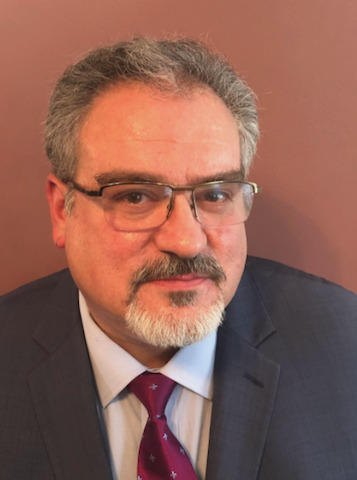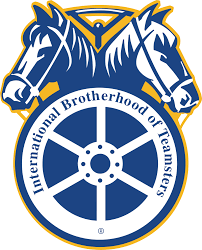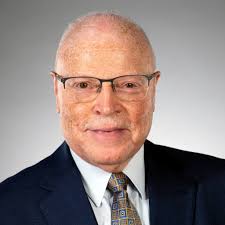New York, NY – The New York City musicians’ union Local 802 welcomed Tino Gagliardi as its new president and executive director on January 1. Gagliardi ran unopposed to win a three-year term to lead Local 802, historically the largest local union of professional musicians in the world.

Gagliardi recently worked in three top roles at Local 802’s parent union, the American Federation of Musicians — director of theatre, touring and booking, international representative to the eastern territory, and assistant to the international president. Previous to that, he served as the president and executive director of Local 802 from 2010 to 2018 after performing as a trumpet player in New York City’s concert, club date, theatre and recording fields. As president of Local 802, Gagliardi led negotiations for all of the major music contracts in New York City, including Broadway, the Met Opera, New York Philharmonic, New York City Ballet and many others. He served as an AFM International Executive Board member from 2010 to 2019 and served on the finance, electronic media oversight and organizing committees. During this time, Gagliardi expanded his union leadership training by attending the New York State AFL-CIO/Cornell Union Leadership Institute. In 2015, Mayor Bill de Blasio appointed him to the New York City Cultural Affairs Plan Citizens’ Advisory Committee. He is also a trustee to the American Federation of Musicians and Employers’ Pension Fund and AFM & SAG-AFTRA Intellectual Property Rights Distribution Fund.
LaborPress sat down with Gagliardi to learn more about him, and the current state of the Local 802 union.
LP: You started out as a musician. What age did you begin and why?
TG: Well, I started playing the trumpet when I was seven-years-old, and I did my first wedding when I was nine. So, I’ve been at it for a long time. I was from a musical family. Actually, my whole family were in the building trades. I also worked with my dad as a bricklayer [stonemason]. But everybody, typical Italian family, we all played instruments. We all had a lot of fun doing it. So, I started really young, I ended up going to college. I attended the Hartt School of Music at University of Hartford for both my bachelor’s and my master’s degree. You know, of course, I was always coming in and out of New York, working as a freelancer, got attracted to the recording studios and the Broadway pits and found myself doing a lot of that and actually just started serving my union as a delegate to the theater committee. And the rest is history, I guess you can say.
LP: What led you to want to get involved with the union?
TG: It was contract negotiations, first. I think it was back in 1998 when I first started paying real attention to what was going on with the rank and file committee that represented musicians playing on Broadway. And I just I wasn’t happy with the state of things. I wanted to see some improvements in the contract, and so I got involved.
LP: Is there a part of your career that has been the most rewarding?
TG: That’s a hard call, right? Because I was absolutely very happy being a professional musician and expressing myself musically through my instrument. But you know, when things started to go south — at least what I thought was in my opinion going south — and starting with it, was actually the Broadway strike of 2004. I was on the negotiating committee as a rank and file member. That’s when it really, really got to me that things needed to improve. And that’s when my real involvement started with the union. And, in the beginning, making the decision to leave the playing field and to go into union administration was a difficult one for me. But the academic challenge that that represented more than made up for my inability, or, I guess, prohibition from working in the field. I still play the trumpet. It’s not something I’ve ever stopped doing. I just don’t do it [professionally], it would be a conflict for me to be working in the field. It wouldn’t be fair either way. I mean, I certainly wouldn’t be as good a trumpet player mostly in this job at the same time. And I wouldn’t be as good a president if I was also practicing the trumpet.
LP: Moving on a little bit to the pandemic, what’s been happening to members since Omicron?
TG: Well, I mean, I think what you’ve seen is pretty evident. Again, let’s be clear. I’ve only been here for a couple of weeks. I’m still getting my sea legs. And I was with the International for the last three years. I was director of theater touring and booking for the AFM. So, my experience with the pandemic was mainly for the touring musicians and getting the Broadway shows back on the road, and bargaining protocols for that. The biggest issue that I see right now on Broadway is a lack of consistency in regards to how the theaters are handling the testing, and how they’re treating the musicians if they test positive or if they have to come in early for testing. Those things that I’m trying to work out right now with the Broadway League, lately. I’ve had a couple of a couple of conversations with Jason Laks. He just came back, he was the director of labor relations for the Broadway League for years when I was president. He went to ABC for a little bit, but he’s since come back to the Broadway League. So, that’s actually a good thing because we have a good relationship. But one of the things that we both think is important for musicians is that we have more consistency in regards to how the theaters are applying the negotiating protocols between the local and the League. It’s a tough situation for us, right? We’re on top of each other. Whether you’re an actor, a stagehand or musician, we’re all working backstage and you know, some musicians can’t wear a mask because of the kind of work that they do. So, it’s tricky, not to mention the actors on stage belting it out every night.
LP: And what happens when a show closes? As it’s been happening so much recently, and when a musician is looking for work. Have contractual provisions been overridden by COVID?
TG: No, there hasn’t been anything overwritten by COVID. And I mean, there is a provision in the Broadway agreement. I don’t think, speaking of consistency, I don’t think there’s consistency amongst the various contracts for the various guilds with regard to how a hiatus is handled. The Broadway agreement with Local 802 does have the hiatus provision that says that they can, in the slow months like January, February and September, they can close the show if their revenue doesn’t meet their operating costs, but in order to do that they have to show us. That didn’t happen. What did happen was perfectly contractual, they posted a closing notice and closed the show. Unfortunately, when you do that, there’s no guarantee of future employment positions.
LP: Do producers take advantage of COVID during periods when shows are traditionally slow, such as the winter months, to close shows?
TG: That’s something that would come out if they would show us their financials, right, we would be able to tell whether or not they’re just hedging their bets or they’re actually in danger of having to close the show. We just don’t have that information.
LP: Do members have to pay dues even if a show closes and they’re laid off?
TG: Well, I mean, the dues structure is kind of an aside, right? You have to pay dues in order to be a member. But the local, the union suffers, the collective suffers when there’s no work, because there’s the work dues structure where there’s a small percentage of the salary that comes to the local that pays for the administration enforcement and negotiation of contracts. That’s not unusual and that’s pretty much everywhere in the labor movement.
LP: What about health benefits?
TG: One of our bigger problems, in the 19 months that we were shutdown was that we had hundreds of musicians that lost their health coverage. I mean, I gotta say, some shows did the right thing, so their musicians continued to enjoy eligibility, but the bulk of the shows, they would just close down and if you don’t have our health benefit structures based on employer contributions, if you’re not working, you’re not getting those contributions.
LP: What are your major priorities now for the local?
TG: My major priority right now is rebuilding the local. We’re a representative organization and right now because of everything that was shut down and the lack of revenue coming into the Local, we had to let a lot of people go, so we’re in the process of trying to rebuild our representational structure by hiring more business reps and that kind of thing.





